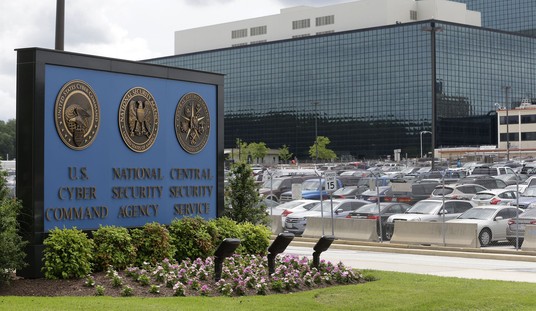There's a fascinating question in a new Fox News poll that suggests the political dynamics at work in 2022 and 2024 will be far different from 2020. If that is the case, it is good news for Republicans.
Here is the question: "If you could send just one of the following two messages to the federal government right now, would it be 'lend me a hand,' or would it be 'leave me alone'?" Fox has asked the question in eight different polls since 2011, but 2020 stands out.
In most years, a majority of respondents told pollsters the message they would send to the federal government was "leave me alone." In 2014, for example, 59% said "leave me alone." In 2016, it was 54%. In 2012, it was 53%. At the same time, during those years, much smaller numbers of respondents -- 32%, 39% and 37%, respectively -- said the message they would send the government would be "lend me a hand."
In other words, majorities did not feel the need for an especially activist federal government. No, they were not saying they did not want existing government programs like Social Security or clean air standards. But they were saying they did not want broad new expansions of the government into everyday life.
That changed dramatically in August 2020, at the height of the COVID pandemic. At that time, a solid majority, 57%, said their message to the government was "lend me a hand." Just 36% said "leave me alone."
Recommended
The reasons were obvious. The public wanted a vaccine. Those who were unemployed through no fault of their own needed money. The same for small business owners trying to survive. Of course they wanted the government to lend a hand.
But by the time of the new poll, in early August 2021, with the nation -- even with the Delta variant -- pulling out of the worst effects of the pandemic, the "lend me a hand" number had fallen to 44%. That, by the way, is precisely what it was in 2011, when the nation was pulling out of the Great Recession. Barring some unexpected calamity, the "lend me a hand" number will likely fall further.
So what does that mean? In the 2020 Democratic presidential primary contest, all the candidates, including "centrist" Joe Biden, proposed far-reaching, hugely expensive expansions of the federal government. The campaign became a bidding war over who could come up with the biggest, costliest policies to address the pandemic, climate change, health care, the cost of college and more. It was a progressive's dream.
In that activist moment, Biden won the Democratic nomination and then the general election. His victory in the Electoral College was quite narrow, as was the Democrats' win to keep control of the House. The Senate ended up 50-50, with Democrats having to rely on Vice President Kamala Harris to break ties. But even with the slimmest margins of control, President Biden, under pressure from the progressive wing of his party, has pushed ahead with programs proposed during the worst days of the pandemic. After all, they were things that progressives had wanted all along and believed the virus crisis gave them an opportunity to enact.
They have succeeded. First, Biden signed a $1.9 trillion "COVID relief" bill, passed on a partisan basis, that spent far more money than was needed. Recently, the Senate passed a $1.1 trillion bipartisan "infrastructure" bill that also spends far more money than is needed. And now the Senate is taking up a $3.5 trillion "human infrastructure" bill that incorporates many of the Democrats' campaign promises for sky-high social spending.
It's unlikely Democrats will be able to pass all $3.5 trillion. But they will probably get a lot of it. And don't believe those threats from Nancy Pelosi that she will block the $1.1 trillion bipartisan bill if she doesn't get everything she wants in the bigger bill. At some point, House Democrats will pass the bipartisan bill and send it to the president. Why would they throw away $1.1 trillion in spending that has already made it through the Senate? The answer is, they won't.
Put it all together with the $1.9 trillion signed in March, and by the end of the year Democrats will likely have pushed through between $5 trillion and $6 trillion in new spending, by far surpassing spending levels on anything since World War II. And it was all because of their ability to take advantage of that brief "lend me a hand" moment in 2020.
But times are changing. If there is no unforeseen crisis, voters are moving back to their more traditional hesitance when it comes to huge new spending proposals. In next year's midterm elections, and in the presidential election in 2024, it's likely the Democrats' activist moment will have passed.
This content originally appeared on the Washington Examiner at washingtonexaminer.com/opinion/byron-yorks-daily-memo-why-2020-was-unique
Byron York is chief political correspondent for The Washington Examiner.


